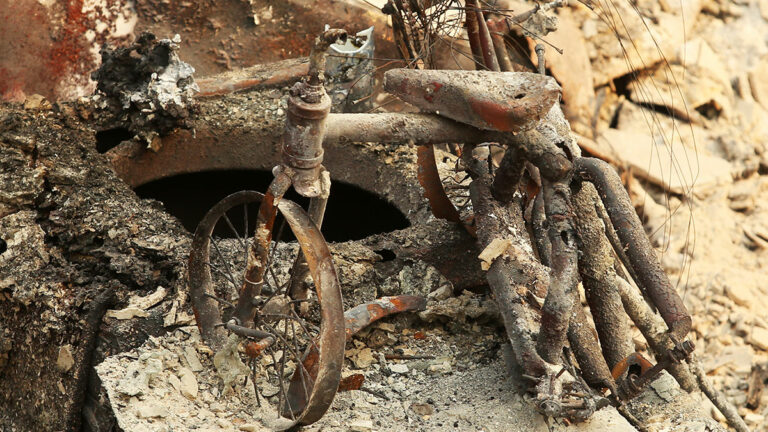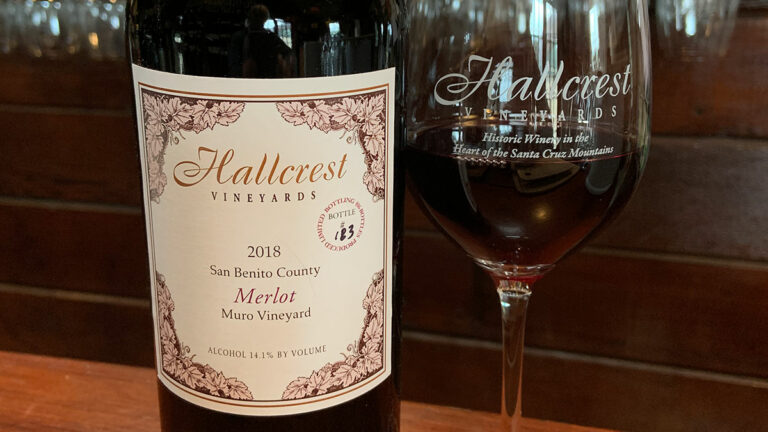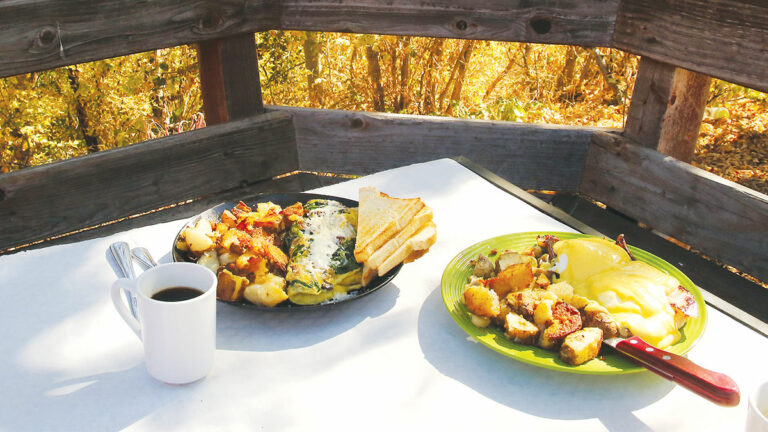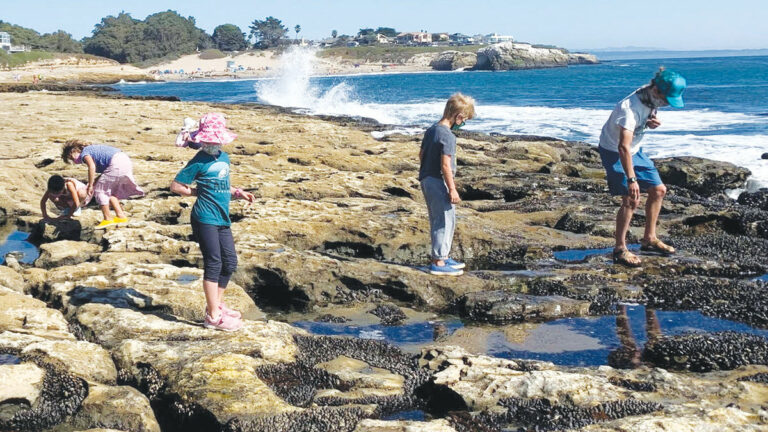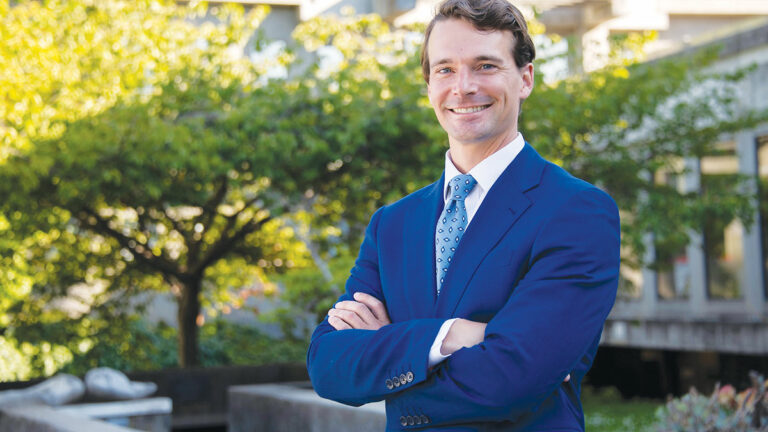This is a complete list of 40 groups we’re raising money for in this year’s Santa Cruz Gives holiday giving campaign. Go to santacruzgives.org to donate to one or more of this year’s participants. — Editor
Big Brothers Big Sisters of Santa Cruz County
Organization Mission: We create and support one-on-one mentoring relationships that ignite the power and promise of youth. We have served more than 7,000 local at-risk children, providing a crucial foundation at a critical time of their lives. Mentors make Santa Cruz County a safer and healthier place by helping children make better decisions, which increases their chances of staying in school and decreases their challenges with substance abuse, teen pregnancy, and the criminal justice system.
Big Idea: Virtual and In-Person Mentoring
More than one-third of youth in Big Brothers Big Sisters have become caretakers, breadwinners and tutors since the pandemic began. Covid-19 disproportionately affects the families we serve.
All of our services are available virtually now, and one positive outcome is that this opens up mentoring for more volunteers, including seniors and others who also may be experiencing isolation. We are uniquely positioned to provide consistent out-of-school and virtual support if needed, and our mentors continue to serve as a vital source of consistency and connection.
Bird School
Organization Mission: The Bird School Project uses outdoor experiential learning to inspire and equip students and teachers to love, study, and steward their local environment. We provide outdoor education about birds to students directly on their schoolyards, making nature and a bit of wilderness easily revisited.
Big Idea: Helping schools reopen with outdoor learning!
The Bird School Project aims to relaunch our popular schoolyard program to help schools use outdoor spaces on campuses to welcome students back to school. Students build skills in focus, direct observation, meaning-making, arguing from evidence, and collaborating with peers—and benefit further from the research-based healing effects of time spent outdoors. Our main program supplements middle school life science classes. Four weeks of school visits include guided, on-campus bird walks; use of binoculars; close examination of museum specimens; and the use of a field journal in which students learn to record their observations creatively.
Camp Krem
Organization Mission: We provide respite services to families of children and adults with intellectual and developmental disabilities. A range of program opportunities are offered year-round to our families in single-day, three-day, five-day and 10-day sessions that provide respite from the demands of daily care and supervision. Our programs foster independence, nurture responsibility, develop competence and build lifelong friendships in a warm, supportive atmosphere of planned permissiveness.
Big Idea: Rebuild Camp Krem After Wildfire
Camp Krem’s full facility was lost in the CZU fire. Over the past 63 years the volunteers, staff and families of Camp Krem constructed more than 27 buildings and structures, which are now gone and in desperate need of rebuilding. In 2019, we offered our services to more than 600 families and served 1,250 campers. They continue to need our help. The goal is to rebuild quickly and return to serving our community.
CASA of Santa Cruz County
Organization Mission: CASA of Santa Cruz County advocates for children, providing court-appointed volunteers so each child in the Dependency Court system feels cared for and connected with the people, families, and resources they need to heal and flourish into adulthood.
Big Idea: Advocating for Foster Youth in Santa Cruz County
Covid-19 is affecting all of us, but children in foster care are especially vulnerable to abuse and neglect. CASA volunteers make sure these children are protected from the isolation that comes with this pandemic. Children in foster care rely on members of their community to ensure they aren’t left behind as the world shelters in place.
CASA recruits, screens, trains, and supervises Volunteer Advocates to work one-on-one with children and their families to support reunification or permanent placement into a safe and healthy home. Advocates get to know their child’s situation and needs, help caregivers access resources to meet those needs, and advocate for the child’s best interests in court, community, and school settings.
California Certified Organic Farmers Foundation
Organization Mission: CCOF advances organic agriculture for a healthy world through organic certification, education, advocacy, and promotion. We envision a world where organic is the norm. Headquartered in Santa Cruz, CCOF co-founded the organic movement in the U.S. with allies across the country. CCOF’s expertise is a key reason that more than 30% of the agriculture in Santa Cruz is certified organic.
Big Idea: Bricmont Hardship Assistance Fund
This fund gives grants to organic businesses affected by hardship, including wildfires, natural disasters, and the Covid-19 pandemic. All dollars raised through this fund go directly into the organic farming community with no administrative fee.
Since 2007, the CCOF Foundation has distributed $250,000 to farmers through our Bricmont Hardship Assistance program. We have already had a four-fold increase in applications for financial assistance in this challenging year.
Coastal Watershed Council
Organization Mission: The San Lorenzo River is forgotten by too many residents who may not realize our drinking water relies on it. The Coastal Watershed Council is the only organization solely focused on revitalizing this river that was the reason Santa Cruz was founded in the first place. Our small but mighty team strives daily to realize Santa Cruz’s vision of a healthy, welcoming and fun river that connects our diverse community to nature, and is a desirable destination for recreation and reflection.
Big Idea: Getting Kids Back Outside
The San Lorenzo River is the primary drinking water source for nearly 100,000 people and is designated as critical habitat for threatened and endangered species of fish. Most locals agree that our community deserves a healthy river ecosystem surrounded by safe and inviting parks. The most important thing we can do for the river, today and tomorrow, is introduce kids to nature at the Riverwalk. We need your support to give teachers, students and hardworking parents activities that they can do both online and offline—outside, playing and learning in nature. CWC’s Watershed Ranger program helps teachers do their job by including lessons that align with the Next Generation Science Standards and Common Core Standards.
Community Bridges
Organization Mission: Together, our family of 10 programs delivers essential services, provides equitable access to resources and advocates for health and dignity across every stage of life. Our programs serve 20 sites and meet the needs of more than 17,000 local children, families, and seniors each year.
Big Idea: Disaster Resource Relief for Impacted Families
Your donation will ensure that Community Bridges’ Family Resource Collective can continue to provide direct financial and resource relief to families and individuals impacted by the Covid-19 pandemic and the CZU Lightning Complex Fire. The four resource centers located in Live Oak, Santa Cruz, Watsonville, and the San Lorenzo Valley provide cash aid for rental assistance and groceries, and assistance with accessing public benefits, FEMA disaster relief, and affordable legal services. These services are provided at no charge to low-income and undocumented households ineligible for government relief, and mid-low income households affected by the fire.
Dientes Community Dental Care
Organization Mission: Dientes is on a mission to create lasting oral health for underserved children and adults. As the largest dental care provider in Santa Cruz County, Dientes provides preventative dental care and affordable treatment for over 10,000 people living in poverty. For nearly 30 years, Dientes has worked hard to ensure that cost, insurance, income, language, and transportation don’t prevent people from visiting the dentist.
Big Idea: Dientes Cares
Dientes is committed to providing access to vital dental care for patients living in poverty so that everyone can have a healthy smile, even amid a pandemic. Covid-19 has increased demand for our care with higher unemployment and more uninsured throughout Santa Cruz County. To keep our patients and staff safe, Dientes has implemented extensive protocols. However, these new protocols are labor-intensive and cost-intensive. Your support of Dientes Cares is critical to help uninsured patients who are most in need receive free dental care, so they have the dignity that comes with a healthy smile.
Ecology Action
Organization Mission: We help people, businesses and communities act now to reduce carbon emissions at scale for a healthy, thriving future. Ecology Action was founded in Santa Cruz in 1970 and has helped to start and run programs that help our region lead the nation in environmental sustainability. Our initiatives include Earth Day Santa Cruz, Bike to Work Day/Bike Challenge, Safe Routes to Schools/BikeSmart/WalkSmart, Electric Vehicle Incentive Programs/National Drive Electric Day, and Monterey Bay Friendly Landscaping/Green Gardener Programs.
Big Idea: Bike Skills are Life Skills
In our lowest income neighborhoods, children walk and bike to school on the dirt shoulder of roads where big rigs roll by less than 20 feet away. One way Ecology Action achieves transportation justice is to ensure all of our children have equal access to skill development training for safely biking and walking by providing free, online classroom training. We support both teachers and students in low-income areas. We seek community support (donations, volunteers, and sponsors) to ensure every fifth-grader rides safely on their bikes and every second-grader can cross a street safely in traffic. There are 109 classes in the county and we seek funds for training the last 25 classes in Live Oak, Bonny Doon, San Lorenzo Valley, Scotts Valley, Watsonville, and Happy Valley.
Exploring New Horizons Outdoor School
Organization Mission: Exploring New Horizons empowers students, builds environmental literacy, and strengthens communities through outdoor education. Every student in the U.S. must have equal access to outdoor education, yet fewer than 10% of fourth-to-sixth grade California students attend such programs and few schools include outdoor learning in their curriculum. Our experienced naturalists engage more than 7,000 students each year outdoors, with a focus on ecology, environmental stewardship, social emotional learning, and the arts.
Big Idea: Outdoor Educational Equity for Students
Outdoor education is essential to relieve some of the pressure that distance learning puts on teachers, students, and their families, and for students who may not learn as well on a screen. However, the increased demand will create further inequity between parents who can afford them and those who cannot. We seek your support for Santa Cruz schools and families by engaging small K-5 groups in outdoor curricula that focus on guided nature exploration, hiking, and observation; nature writing, drawing, mapping, and data collection; and art, music, and imaginary play.
Farm Discovery at Live Earth
Organization Mission: Farm Discovery at Live Earth empowers youth and families to build and sustain healthy food, farming, social and natural systems. On our organic farm, youth learn to grow and prepare healthy, plant-based foods from the field to the table. We provide year-round opportunities for people of all ages to learn and to participate in a sustainable food system.
Big Idea: Covid-19 Relief Via Organic Produce Distribution
Farm Discovery is still providing outdoor education to children in response to the pandemic and fire-related hardship, and we are distributing organic produce to locations across the county. We hope to assist other farms as well in reducing hunger, health problems related to diet, and food waste in our community. We have donated 24,000 pounds (12 tons) of produce for 24 weeks since April and are continuing every week. An average of 25 pounds of produce feeds a family of four for one week—therefore, we feed about 40 families per week. With your support, we can continue and grow this into 2021, keeping our cost to only $1.30/lb. of produce, which covers the produce and all labor to keep the project going.
Food What
Organization Mission: “Food, What?!” is a youth empowerment and food justice organization. At FoodWhat, youth cultivate their well-being, liberation and power by engaging in relationships with land, food and each other. Youth from Watsonville to Santa Cruz join the FoodWhat Crew through our Spring Internship, Summer Job Training and Fall Project Management programs. Within the supportive space of FoodWhat, youth grow, cook, eat and distribute farm-fresh, organic food while addressing local food justice issues.
Big Idea: Youth Empowerment, Food Justice
As economic, health and food insecurity deepens in our community, youth of color continue to struggle in these areas with disproportionate difficulty. That’s why at FoodWhat, we will continue to get fresh, healthy food to marginalized youth and their families—no matter what. Whether from growing their own food on the farm, or receiving fresh CSAs at their doorsteps, FoodWhat families will have a food access point that is stabilizing, nourishing and community-driven.
Girls Inc.
Organization Mission: To inspire all girls to be strong, smart, and bold, and to respect themselves and the world around them. Girls Inc. serves 1,700 girls in 41 schools with trained professionals (often older teens) who mentor them in a safe environment. Girls are inspired to pursue secondary education, develop leadership and decision-making skills, serve their communities, and acquire the ability and wisdom to lead healthy lifestyles.
Big Idea: Virtual Leadership Mentoring Program for High School Girls
The overriding goal of our new virtual program is that girls will learn to set and achieve goals, boldly confront challenges, resist peer pressure, see college as attainable, and explore nontraditional fields. The virtual setting eliminates transportation issues and will allow girls throughout Santa Cruz County to participate more easily. Participants will meet twice a month for 12 interactive, virtual sessions.
Grey Bears
Organization Mission: Grey Bears improves the health and well-being of seniors and our community through food distribution, volunteerism, resource conservation and recycling. Seniors caught at the edge of poverty often live alone and rent. Because Santa Cruz County is one of the least affordable areas in the U.S., an estimated 40% of seniors do not have the income to meet their basic needs.
Big Idea: Moving Forward at Every Age
What does it mean to age well? Local, vital and multifaceted, Grey Bears believes that good nutrition, activity and social connection are the perfect recipe for healthy aging. We deliver fresh vegetables, fruits, and healthy staples to 4,200 seniors weekly including 1,300 who are homebound. Our kitchen will also deliver 1,600 healthy meals to seniors this holiday season.
Homeless Garden Project
Organization Mission: In the soil of our urban, organic farm and garden, people find the tools they need to build a home in the world.
Big Idea: Transitional Employment Program
HGP has continued to provide essential services for the community, both in human services and growing food for the community. In a destabilized world, those experiencing homelessness remain vulnerable and HGP’s yearlong program remains a critical opportunity to get folks back on their feet. Now in its 30th year, the program has been honed to be as effective as possible for getting people into stable housing and employment. A new priority has been to support our alum once they have obtained employment and housing. The strengthening of our graduate support and to grow and deepen the impact of our work is the focus for the immediate future.
Hope Services
Organization Mission: Hope’s mission is to improve the quality of life for people with developmental disabilities and mental health needs. We serve more than 350 adults and teens in Santa Cruz County annually. Our seven programs emphasize vocational development and community participation. From a mobile work group for clients interested in working on crews, to job training and placement, to a mental health program offering case management and psychiatric services, Hope Services is a leader in providing innovative programming to local clients.
Big Idea: From Hope to Home
To keep our clients connected to programming that has had to close during the pandemic, Hope Services is transitioning to our new remote learning service: From Hope to Home. We are requesting funds to equip 50 clients with laptops and tablets to access live, interactive, daily online programming with our staff so that this vulnerable population will not experience isolation. It is vital to provide programs in which individuals with disabilities can develop social connections, learn, develop their interests, and find meaningful engagement through employment and other endeavors, just like the general population.
Hopes Closet
Organization Mission: To provide gently used clothing, equipment, blankets, shoes, books and toys (Bundles of Hope) to children in need in Santa Cruz County. Everyone who needs help gets it. There are no eligibility requirements to receive services.
Big Idea: Bare Necessities
There’s nothing like the feel of new socks and underwear to make you feel good about yourself (imagine what it would feel like to put on someone else’s used socks and underwear every day). Unfortunately, those bare necessities are not something a family in need is able to spend precious dollars on. At Hopes Closet we believe that every child is deserving of that special feeling and our Bare Necessities project will ensure that every child we help will receive a new pair of underwear and socks in their “Bundle of Hope” bag. In addition to monetary donations that help us buy new undergarments, we will enlist community support and local youth groups for a “kids helping kids” focus to supplement our current endeavors.
Housing Matters
Organization Mission: Housing Matters partners with individuals and families to create pathways out of their homelessness into permanent housing. Housing Matters case managers support more than 500 unhoused neighbors in Santa Cruz County on their pathway to stable housing on any given day. This includes 200 adults and kids sleeping in shelter programs on our campus, receiving three nutritious meals a day, plus consistent support in getting back home from expert staff and compassionate volunteers. Last year, Housing Matters connected more than 300 adults and kids experiencing homelessness in our community with stable, permanent housing, thus ending their homelessness.
Big Idea: Pathways Home Toolkit
Nearly 1,000 homes were lost in the fires in Santa Cruz County. Losing a home is a universally traumatic experience, and no person should have to navigate that experience on their own. Housing Matters case managers are experts at helping your neighbors move through the experience of homelessness and get back into housing. Many stepped up to support their unhoused neighbors in navigating the crisis of homelessness. Our expert-informed toolkit will support those volunteer “case managers,” many of whom are helping those newly displaced by the fires. This interactive toolkit will include information on trauma-informed care, case management basics, setting manageable goals, working with someone in crisis, self-care, boundaries, and more.
Jacob’s Heart
Organization Mission: Jacob’s Heart exists to improve the quality of life for children with cancer and other life-threatening illnesses by supporting their families in the challenges they face. We provide emotional, practical, financial and peer support to hundreds of local children with cancer and thousands of their family members. We envision a community where every child with a serious or life-threatening condition has a strong, supported and informed family empowered to fully participate in their care.
Big Idea: Medically Fragile Children
Caring for a medically fragile child is always rife with fear and uncertainty. Financial stress compounds when your child is seriously ill. Siblings are confused and scared. A simple trip to the grocery store is always a risk when caring for an immunocompromised child. Early in 2020, no one could have imagined the challenges that were about to befall the children and families we care for at Jacob’s Heart. We seek support for our new laser-focused emergency relief plan to address the immediate physical and emotional needs of families of medically fragile children during the pandemic: safe housing, food, transportation to treatment and crisis counseling.
Live Like Coco
Organization Mission: We help kids in the Santa Cruz County area to grow up healthy and with opportunities to pursue their dreams. Our foundation is inspired by Coco Lazenby, who was killed in a car accident in 2015 at age 12. We work to provide local children with opportunities that made a difference in her life.
Big Idea: Improving Book Diversity
This year, we are stepping up efforts to improve language diversity and to represent a wider variety of ethnicities, family backgrounds and abilities for our literacy program. Our program provides books to students at local public schools, at little free libraries we’ve placed throughout the community, and to local organizations that reach our most vulnerable communities. We also sponsor a forest and community garden, pay for scholarships, and organize beach cleanups and field trips, among other efforts to improve the lives of local kids, with a focus on those in low-income communities.
MENtors
Organization Mission: MENtors supports boys, men and fathers to achieve healthier social and emotional development that will enrich their awareness, engagement and connection, and help each to build lasting relationships with one’s self, interpersonally, with their families and the greater community.
Big Idea: 100 MENtors Who Care Initiative
This year, we would like to create a team of 100 men in Santa Cruz County to serve and support local boys, young men, men, and fathers. Your donation will help us to recruit, engage, train and support these men who will coach and mentor boys and men. Currently, we provide weekly programs to boys and young men in four middle schools and one high school. We host four father involvement and co-parenting classes to enhance fatherhood roles, strengthen parent-child relationships, and promote team parenting.
Pajaro Valley Shelter Services
Organization Mission: PVSS provides families with a path to stable, self-sufficient futures through short-term and longer-term housing and supportive services. In 2019-2020, PVSS served 204 individuals. 87% of PVSS families exited to permanent housing, 67% exited with savings for housing; and 71% of adults exited successfully with employment. We run structured, drug- and alcohol-free programs within a warm, secure environment.
Big Idea: Economic Empowerment for Families Experiencing Homelessness
Families in PVSS programs literally work their way out of homelessness and financial vulnerability. At the onset of shelter-in-place, 50% of PVSS families experienced job loss or employment interruption. PVSS is launching Coordinated Economic Development to provide families with financial literacy training, tuition assistance for job training resources, and assistance with finding and retaining employment. Financial resilience makes the difference between maintaining progress toward permanent housing and returning to homelessness—during and beyond the pandemic.
Pajaro Valley Loaves and Fishes
Organization Mission: Our vision is a Pajaro Valley community in which all people have access to healthy food and basic necessities. Our mission is to provide healthy, hearty meals, groceries and fresh produce, and connections with other agencies to help our neighbors enhance their health and well-being.
Big Idea: Increase Our Outreach, Reduce Our Carbon Footprint
For the past 30 years, we’ve been a frontline, boot-strapping food pantry and lunch program touching thousands of lives each year with a limited budget and efficient operations carried out by hundreds of dedicated volunteers and a small-but-nimble staff. As we serve over 26,000 hot meals each year, we’re dedicated to serving our clients in the most nutritious and environmentally-friendly way possible. Our on-site, free-to-all-who-are-hungry lunch program was 100% waste free, pre-Covid. We are now challenged to provide the same healthy meals in to-go packaging. To adjust to the new way of serving our clients, we’ve been using more disposable products and are well aware of the strain this has on our environment. Please help us make our operation—receiving, storing and distributing more than 500,000 pounds of food each year—greener.
Regeneración — Pajaro Valley Climate Action
Organization Mission: We work with community partners to inspire everyone in the Pájaro Valley to respond locally to the global challenge of a changing climate.
Big Idea: Women, Girls and Climate Justice
Women know a great deal about building relationships and nurturing life. This knowledge is essential for spreading awareness and taking swift action to protect a livable world as our community faces a difficult recovery from unprecedented wildfires fueled by drought and extreme heat. We will convene our third community forum and social media awareness-raising campaign in 2021 with a focus on Women and Climate Change. We’ll plan, host, and promote a virtual Climate of Hope forum featuring a range of female voices and targeting a diverse audience from our tri-county area. High school and college students will gain skills in organizing, communications, effective outreach, and engagement as they help to develop and promote an online event that inspires others to take meaningful action and spur new initiatives to reverse global warming. We’ll focus on how women, especially low-income women of color, are disproportionately affected by climate impacts and are needed in leadership.
Resource Center for Nonviolence
Organization Mission: The Resource Center for Nonviolence promotes the conscious practice of nonviolence and antiracism as dynamic forces necessary to achieve personal, institutional and societal changes for the creation of a just, peaceful and sustainable future.
Big Idea: Racial Equity Leadership Training
We will conduct trainings for leaders in companies, nonprofit organizations, and government agencies in Santa Cruz County, using the latest models for teaching antiracism transformational leadership skills and perspectives, assisting leaders to create new policies supporting racial equity and to change policies within institutions. This program will examine racial disparities in Santa Cruz County and will draw from local expertise to create a more holistic and collaborative approach to the field of diversity, equity and inclusion. Your donations will support development of this program and scholarships for participation.
Santa Cruz Museum of Natural History
Organization Mission: Connecting people with nature and science to inspire stewardship of the natural world.
Big Idea: Museum At Your Side
The Museum hopes to engage lifelong learners, students, and teachers with our new project, the Museum At Your Side, a collection of hands-on activities, informative articles, and engaging videos to connect you (yes, you and all of your neighbors) with nature and science wherever you are! The Museum offers a variety of downloadable activities and resources such as field guides and scavenger hunts, and more. Users can connect with other nature lovers through interactive programs that bring together people with a shared interest and access our collections and exhibits in ways never before possible.
Save Our Shores
Organization Mission: To steward clean shores, healthy habitats, and living waters, which will foster thriving marine ecosystems across our California Central Coast and protect the resources that make our community a most desirable place to live and visit.
Big Idea: 3D Virtual Reality Marine Ecosystem Learning Modules for Underserved Youth
Our project takes underserved youth in middle school on an experiential 3D virtual reality dive into our amazing marine protected areas, complete with an animated wildlife character and instructional guide. The animated character explains why marine protected areas were established, defines the different types of areas, and tells stories about the plants and animals that live in them. We received a grant to create the 3D VR experience and a lesson plan, and to pilot it in six schools. We are seeking funding to expand delivery of this program to many more schools across our community. There will be a 2D version so we can deliver the program via distance learning. If we raise $25,000, we can bring it to 100 classrooms throughout the county.
Santa Cruz SPCA
Organization Mission: The Santa Cruz SPCA provides safe harbor for animals in need and promotes an active humane community through adoption, advocacy, and education.
Big Idea: Keeping Pets and People Together
What if we could keep pets with loving guardians and prevent the trauma of expensive shelter stays, even during tumultuous times? The Santa Cruz SPCA helps animals whose households are in distress or affected by the disasters of 2020 with new and expanded programs, including weekly pet food pantries that gave out 11,000 pounds of food and pet supplies in 2019. After the 2020 fires, they have been open daily to meet increased demand. “Ask the Dog Trainer” sessions help dozens of guardians solve behavior issues to prevent pet surrender. A new “Emergency Housing Toolkit” at our Pet Food Pantries would show how to find pet-friendly rental housing, list local apartment complexes that accept pets, and offer applications for one-time grants of up to $500 for pet deposit and rental fees.
Santa Cruz County Animal Shelter Foundation
Organization Mission: The primary organization safeguarding and improving the lives of domestic animals is the Santa Cruz County Animal Shelter. With an intake exceeding 5,000 animals a year, SCCAS has a bedrock of municipal funding for core services such as animal control, licensing, rabies vaccinations, housing for strays and surrenders, and intervention in animal abuse cases. Independent funding is required for SCCAS’s key preventive initiatives: spay/neuter clinics, training classes, humane education, community outreach, and ability to respond to emergency circumstances.
Big Idea: Recovery and Preparedness
The impact of the virus and fire has underscored the importance of developing a Recovery and Preparedness Plan to cope with a double or even triple disaster. In response to this year’s economic hardship, shelter staff and volunteers joined with other agencies to provide disaster service workers, and deliver needed pet food and basic veterinary services countywide. During the fire, SCCAS staff cared for nearly 4,500 pets, including animals left at home who were fed, watered and looked after by the Shelter’s Animal Control officers with permission from the Sheriff’s office. Since the pandemic, many organizations shut down, but SCCAS has remained open, providing essential core services, taking in surrenders, receiving strays, retrieving lost pets, providing adoption services and making pet food available to owners struggling financially.
Second Harvest Food Bank
Organization Mission: Second Harvest Food Bank Santa Cruz County’s mission is for our county to be a community working together to end hunger through healthy food, education and leadership. Through our network of partner agencies, we provide nutritious food and CalFresh application assistance for families, seniors, the unemployed, farmworkers, immigrants, veterans, homeless, sheltered homeless, the disabled, and those suffering from mental illness.
Big Idea: Food Access for Santa Cruz County
Our county’s high cost of living and the pandemic has led to 90,000 people a month needing food assistance. One-third of our county seeks help from the food bank and our partner agencies due to job loss, high rent and low wages. We partner with a broad network of local nonprofits and safety net services such as food pantries, shelters, and group homes that allows your support to reach deep into neighborhoods. Help us respond to the increased need by supporting our Holiday Food and Fund Drive, which allows us to provide 100 nonprofit agencies with food throughout the year, as well as supply much-needed nourishment to local residents through our own distributions.
Senderos
Organization Mission: Senderos is a volunteer-based organization that forges pathways to success for Latino youth through free traditional music and dance programs, and fosters educational opportunities. Senderos has established cultural pride in the face of racism and gang involvement, and has grown from serving seven youth in 2001 to more than 150 youth and young adults each year.
Big Idea: Equity in Education and Arts for Latino Youth
In 2021, we will focus on academic and cultural arts equity for Latino youth. Senderos will provide homework help, tutoring, and mentoring for youth, and computer literacy training for parents. Distance learning has illuminated the disparities for low-income, immigrant families. Where possible, improved connectivity, headsets, and quiet learning spaces could make a difference. Senderos also seeks to build our scholarship fund to motivate first-generation students on their pathway to higher education. Finally, we aim to enhance methods to engage youth in our free, now virtual, music and dance classes.
Shakespeare Play On
Organization Mission: Inspired by Shakespeare, we create and strengthen community by bringing audiences and theater artists together to celebrate stories about our collective humanity. Santa Cruz Shakespeare’s outdoor theatre festival is a treasured 40-year tradition.
Big Idea: Student Transportation Fund
Santa Cruz Shakespeare extends its public summer season into September each year to offer student-only matinees for regional high schools. But many schools run up against a frequent problem: the lack of transportation to and from the Grove. Due to lack of funding for bus transportation, and the parents’ lack of vehicles or inability to miss work, transporting students as a group is not an option for many schools. Donations will go to Santa Cruz County schools in need only, and will allow SC Shakespeare to expand its current matinee opportunities to more students.
Shared Adventures
Organization Mission: Shared Adventures is dedicated to improving quality of life for those with disabilities. In the belief that recreation, fun, challenge, and access to the outdoors are essential to health and fulfillment, we get people outdoors and moving beyond imagined limitations. Approximately 2,000 individuals with physical and intellectual disabilities take part in Shared Adventures activities each year, benefiting individuals, families, and the wider community.
Big Idea: Make Santa Cruz a Destination for Visitors with Disabilities
Shared Adventures organizes many accessible activities. We would like to promote the opportunities for disabled visitors to enjoy local activities by updating our 15-year-old Santa Cruz County Access Guide, a resource guide with “easy visit” plans for disabled travelers and the local disabled community alike. We will work with Visit Santa Cruz County to publicize resources such as transportation, beach accessibility, accommodations, and more. A full calendar of events is also provided through Zoom, such as adaptive yoga and exercise classes, dance parties, bingo, book club, and arts and crafts—with robust participation.
Teen Kitchen Project
Organization Mission: The Teen Kitchen Project builds healthier communities by cooking food. Chefs and nutritionists help volunteer teens cook nourishing meals that are delivered to individuals and families in crisis due to severe illness throughout Santa Cruz County.
Big Idea: Support the Critically Ill with Home Delivered Meals
Help us increase delivered meals by 200% to support those who are isolated due to illness during the pandemic. Your support will provide uninterrupted meal delivery service to 500 Santa Cruz County individuals and families who are impacted by a life-threatening illness. We’ll also continue to engage teens as a paid, stable workforce in order to deliver a total of 97,000 meals in 2020, representing an increase in production of 140% as we respond to the evolving impact of the pandemic.
UnChained
Organization Mission: UnChained fosters empathy, respect, and responsibility in youth through the human-animal bond. For 12 years, UnChained has served more than 350 youth who have helped train, socialize, and find homes for over 170 dogs—unleashing the youth’s potential one dog at a time.
Big Idea: Youth-Canine Learning Community
UnChained works with two vulnerable populations in Santa Cruz County: homeless dogs and at-risk youth. To broaden the impact of our innovative animal-assisted therapy programs, we are piloting a Humane Education program to build a learning community for Santa Cruz County youth through canine-themed topics, dog training, and community-service learning projects. Our program includes 25 classes, 90-minutes each (to conform with lockdown restrictions; virtual as needed) covering dog training, the biology/science of dogs, relationship skills, civic skills, and more.
Vets 4 Vets Santa Cruz
Organization Mission: Vets 4 Vets is a nonprofit by and for local veterans along with supportive friends who create community and assist our brothers and sisters in need. Our work is to provide funding to fill the gaps left by government and other organizations, including emergency food, transportation, home repairs and emergency housing. We also provide activities and services designed to break the isolation of veteran participants.
Big Idea: Filling the Gaps
We are asking for support for our big idea, which is to provide funding to veterans and their families who are in an emergency situation. Funds will go toward basic needs, and to meet the increased demand. The highest priority for assistance is veterans who are affected by Covid-19 and/or fire-related evacuations and other losses. We have no paid staff and operate with 50 volunteers, so that your donation will be used efficiently.
Warming Center
Organization Mission: To reduce the experience of hypothermia and the occurrence of death within the population of people who sleep outside; to identify the basic unmet needs of homelessness; and to create and operate programs to meet those needs. Warming Center programs not provided by funding sources such as government and other organizations include day and night storage keeping personal belongings safe, weekly laundry and Shower Sunday—the longest and hottest shower for those who sleep outside.
Big Idea: Footbridge Homeless Services Center
After several years of offering a homeless shelter, the Warming Center Program asked, “What are other unmet needs of homelessness?” A list of needs became clear: storage for homeless persons’ belongings; a laundry and shower program; electrical device charging bays; and a robust donation program where people can access blankets, clothing and hygiene supplies. We’re finally bringing all of this together and locating it along a nexus of homeless foot and bike traffic near other service programs. Our work benefits the individual and the community by reducing crime and environmental degradation, and offers people an easier path towards normalcy.
Watsonville Wetlands Watch
Organization Mission: Watsonville Wetlands Watch works to preserve, restore, and foster appreciation of the wetlands of the Pajaro Valley, and involve the Watsonville community. Our education programs reach over 4,000 students with outdoor learning that helps to develop the next generation of environmental leaders.
Big Idea: Climate Change Leadership Institute, Expanding Urban Forest
In response to Covid-19 and to support our initiative Wetlands Action for Climate Change, we launched a paid job training program that helps Watsonville teens expand their leadership skills and take local actions to curb climate change and address environmental justice issues. Funds raised from Santa Cruz Gives will enable the development of the Climate Corps Leadership Institute, a multi-year paid internship for teens, and will also support the expansion of urban tree plantings in Watsonville. Teens will plant trees on streets, parks, schools, and neighborhoods and will develop small group action projects to affect big changes related to climate change resilience and urban forests in Watsonville.
Wings Homeless Advocacy
Organization Mission: We are committed to working with our community to end chronic homelessness in Santa Cruz County. We live out our values of compassion, dignity and respect for all people by uniting our community to be volunteer advocates for those moving out of homelessness and onto a path of healing.
Big Idea: Mobile Services to Double Outreach
Wings’ goal is to help people get into housing and to remain in permanent housing. With no building expenses, only three part-time staff and 40 volunteers, we provide critical household items, beds and bedding, furniture, free haircuts, vital documents—and much more. Our Big Idea is to raise funds for a much-needed vehicle which will allow for mobile services to be offered to those experiencing homelessness and will more than double our outreach capabilities. This vehicle will allow for vital document services to be provided directly where our clients are, as well as offer additional moving capacity of furniture, beds and welcome baskets that contain essential household items.
Youth N.O.W.
Organization Mission: Youth N.O.W. is committed to engaging youth in a nurturing community where each individual can grow personally and academically through individualized programs that cultivate success. By providing no-cost academic support to those that most need it, Youth N.O.W. helps our youth to thrive and in turn contribute to the success of their community.
Big Idea: No-Cost Tutoring for Distance-Learning Students
The impact of distance learning on our vulnerable populations is leaving some students without the support necessary for them to succeed. Youth N.O.W. is addressing the inequity by adding more tutors and increasing virtual and on-site appointments for caring, trained adults (both paid and volunteers) to assist students 1:1 with academics. We hope to prevent youth from falling behind in their learning during this challenging time. For 10 years we have been supporting students so they may gain confidence in school and in life, broaden their creative interests, and feel connected to a place of nurturance.



